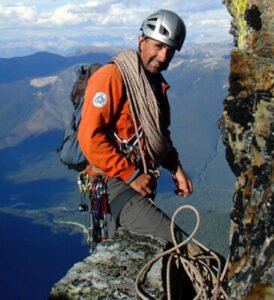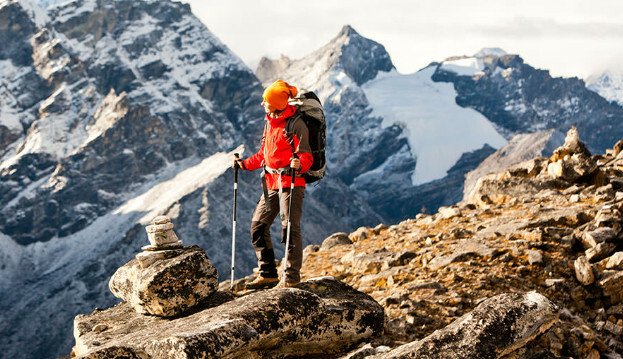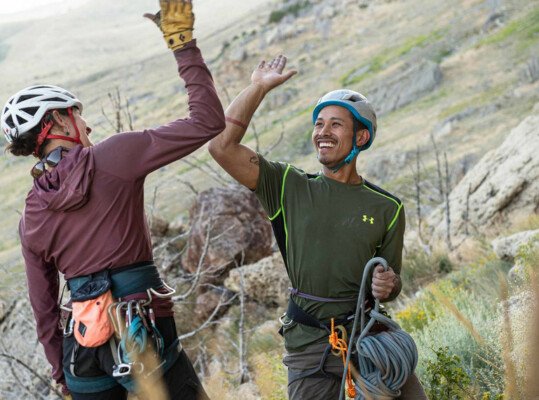Mountain guides play a crucial role in ensuring the safety and success of any mountain expedition. They are trained professionals who possess the necessary skills and knowledge to lead climbers through challenging terrain and unpredictable weather conditions. However, not all mountain guides are created equal. When choosing a mountain guide, there are several factors to consider to ensure that you select a guide who is skilled, experienced, and trustworthy. In this article, we will discuss what to look for when choosing a mountain guide.

Qualifications and Certifications
The first thing to consider when choosing a mountain guide is their qualifications and certifications. A good mountain guide should have completed a comprehensive training program, such as those offered by organizations like the American Mountain Guides Association (AMGA) or the International Federation of Mountain Guides Associations (IFMGA).
These programs cover a range of topics, including technical climbing skills, rescue techniques, risk management, and environmental stewardship. Look for a guide who has earned these certifications and who continues to update their skills through ongoing education and training.
Experience
Experience is another important factor to consider when choosing a mountain guide. Look for a guide who has a wealth of experience in the mountains, especially in the region where you plan to climb.
A guide who is intimately familiar with the terrain and weather patterns will be better equipped to keep you safe. Ask for references from past clients and check online reviews to gauge the guide’s experience level and track record.
Communication Skills
Effective communication is crucial when climbing with a guide. Look for a guide who communicates clearly and effectively, both verbally and nonverbally. A good guide should be able to explain complex technical concepts in simple terms and give clear instructions in high-pressure situations.
They should also be able to read their client’s body language and adjust their communication style accordingly. When interviewing potential guides, pay attention to their communication skills and make sure you feel comfortable communicating with them.
Environmental Stewardship
Mountain guides have a responsibility to protect and preserve the natural environment in which they work. Look for a guide who prioritizes environmental stewardship and practices Leave No Trace principles.
A good guide should be knowledgeable about the local ecology and should take steps to minimize their impact on the environment. Ask potential guides about their environmental practices and look for evidence of their commitment to sustainability and conservation.
Safety Record
One of the most important factors to consider when choosing a mountain guide is their safety record. Climbing in the mountains always involves a certain amount of risk . A good guide should have a track record of minimizing that risk and ensuring the safety of their clients.
Look for a guide who has a history of successful and safe climbs . Some one who has protocols in place for managing emergencies and unexpected situations. Ask potential guides about their risk management strategies, and make sure you feel confident in their ability to keep you safe
Gear and Equipment
Another important consideration when choosing a mountain guide is the gear and equipment they provide. Look for a guide who uses high-quality gear and equipment that is well-maintained and regularly updated. A good guide should also provide a detailed gear list and be willing to help you select and pack your gear. Ask about the guide’s policies regarding rental gear and make sure you understand what is included in the cost of the trip.
Cost
Cost is, of course, a factor to consider when choosing a mountain guide. While it’s important to find a guide who fits your budget, it’s also important to remember that the cheapest option may not always be the best option. Look for a guide who offers a fair price for their services and who is transparent about their pricing structure.
Reputation
Finally, consider the reputation of the mountain guide when making your choice. Look for guides who have positive reviews and recommendations from past clients. Do some research online to find out what others are saying about the guide’s services and approach. A good guide should have a reputation for being professional, reliable, and dedicated to their client’s safety and success.
Conclusion
Choosing the right mountain guide is crucial for a safe and successful mountain expedition. When selecting a guide, consider their qualifications, experience, communication skills, personal compatibility, and commitment to environmental stewardship. By taking the time to choose the right guide, you can ensure a memorable and rewarding experience in the mountains.


